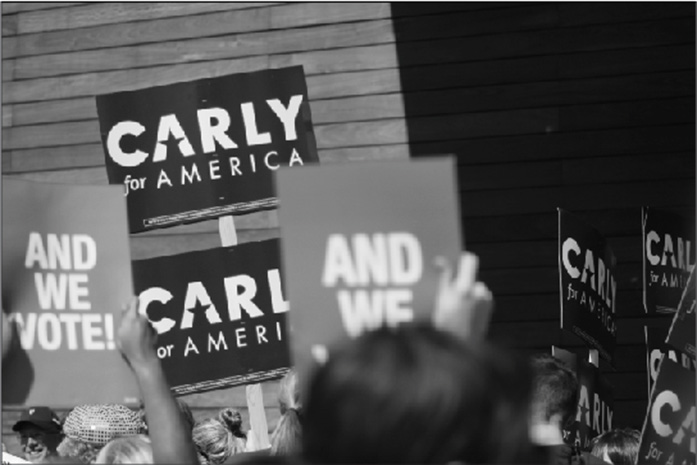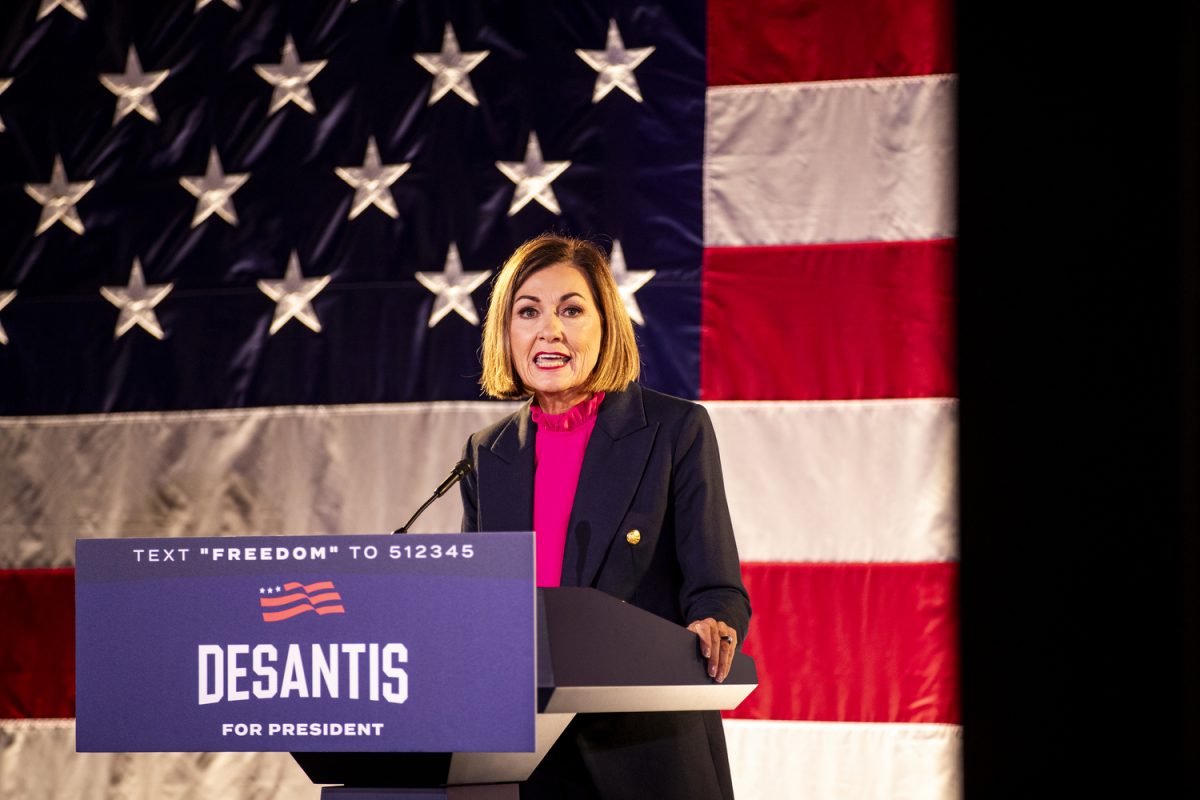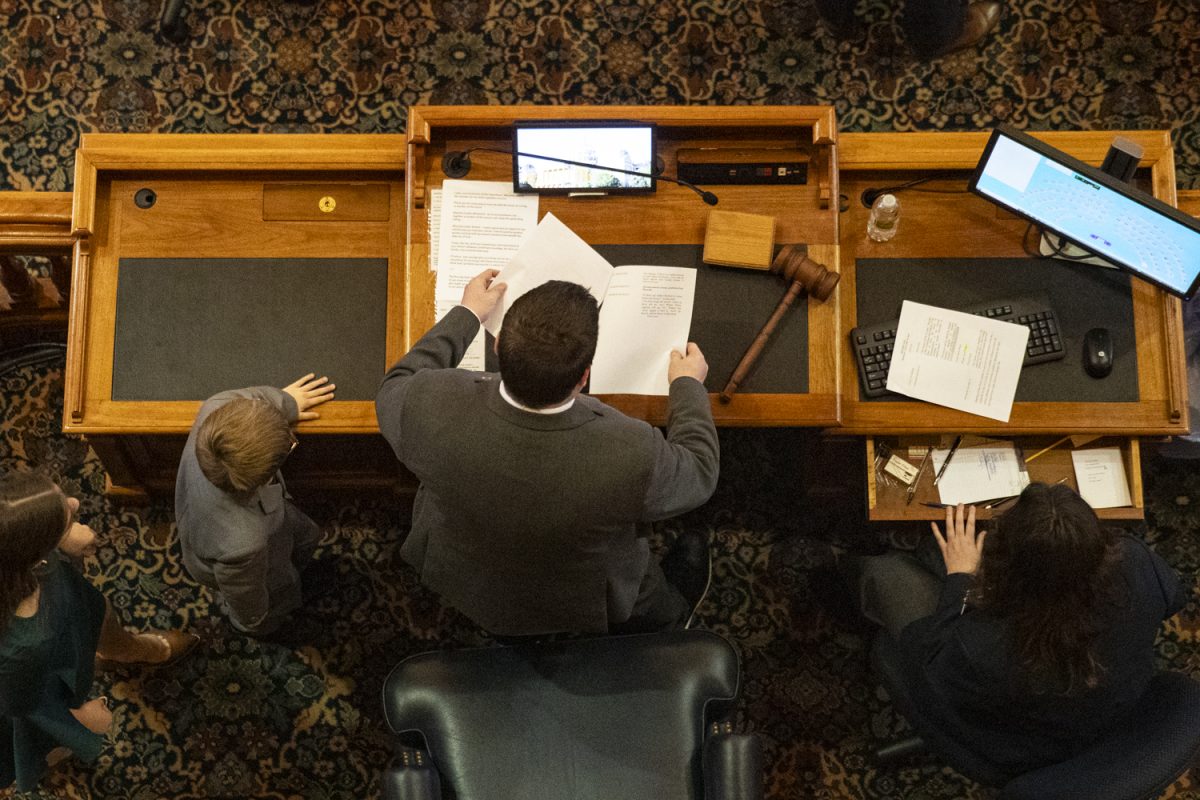Less than 100 days from the Iowa caucuses, the path for the future of SuperPACs continues to be plotted in Iowa.
By Brent Griffiths
When your state hosts the first-in-the-nation caucuses, some aspects are almost a given. Satellite trucks and news anchors swarm into the state, overflowing hotel rooms before converging on large events, or more commonly an Iowan’s backyard or the backroom of a local eatery. Knocking on doors, planning events and passing out leaflets — these are all the domain of a traditional campaign.
Over the summer, news reports predicted the rise of a new era for Super PACs that would upend their idealized Norman Rockwell image.
Less than 100 days out from the Iowa caucuses the verdict on the new model is far from clear. But what is certain is that outside groups have enmeshed themselves into the fabric of the campaign.
“We’ve actually seen the Run Ben Run organization,” said Will Rogers, the chairman of the Polk County Republicans — the largest county in the state. “They have been at events for over a year now.”
“Run Ben Run” was organized to help draft retired neurosurgeon Ben Carson into the 2016 fray. On its most recent financial disclosures, the group reported a bevy of interns and organizers in the state and was renting voter information from the Iowa Republican Party.
Super PACs are technically known as independent-expenditure-only committees. In reality, that means that thanks to Citizens United and a lower federal court ruling, the outfits can raise unlimited sums of money.
But there’s a catch.
Legally, the groups “cannot coordinate” with a declared candidate or her or his campaign.
Spend a weekend on the campaign trail, though, and you’ll see the legal barrier is being prodded, tested, and stretched to its limits all in service of the new age for outside spending.
Super PACs can and have:
• Sponsored appearances in which a presidential hopeful is the featured speaker, including paying for all the costs involved with the event
• Employ countless volunteers who work in campaign offices
• Send out mail and ads with positive messages of the candidates
• Use a name strikingly similar to a declared candidate
“Until a federal court rules otherwise, this is the new model for a presidental campaign,” said Jamie Johnson, a longtime Iowa presidential campaign hand, most recently for Texas Gov. Rick Perry.
Johnson remained convinced that despite a network of pro-Perry groups having more than $17 million left when the two-term governor exited the race in September, Super PACs will continue to expand their role beyond just a hub for TV advertising.
Just look at Louisiana Gov. Bobby Jindal’s itinerary, and you’ll see what the future may bring.
Following on an adage in Iowa campaigning, Jindal has promised to crisscross the state on his way to the famed “full Grassley,” a term used to describe a hopeful who visits each of Iowa’s 99 counties, which Sen. Chuck Grassley does each year. In Jindal’s case, the expenses for such a trek fall on more than just the governor’s campaign.
A look at Jindal’s travel itinerary reveals that rarely does a day go by in Iowa without featured appearance for Believe Again, a Super PAC formed to support Jindal, and it has blanketed the state with ads currently touting Jindal’s faith across the state.
Across the aisle, former Iowa Democratic Party field director Bradley Knott doubts the ability for Super PACs to replace campaigns themselves because the simple logistics of planning an event could become a nightmare if campaigns and Super PACs are not coordinating.
“I would be very reluctant to give that kind of control,” Knott said.
Carson has temporally halted public appearances for his presidential campaign while he goes on a nationwide book tour. But according to numerous media reports, just like at events this past summer, supporters for his Super PAC armed with information about him are never far away.
To someone such as Paul S. Ryan of the Campaign Legal Center, the problems in the current system are literally spelled out. While the laws are not exactly clear, he said, it was understood that a Super PAC or any unauthorized committee could not use the name of a candidate — part of the reason Run Ben Run changed its name to the 2016 committee.
A Super PAC backing former Hewlett-Packard CEO Carly Fiorina technically changed its name to as Conservative, Authentic, Responsive Leadership for You and for America — although this mass of syllables is usually stuck in the fine print. On the bright red T-shirts and campaign signs it simply reads CARLY for America — something Ryan sees as a clear, albeit clever, violation of the law.
“The FEC is so out of touch with reality and what average people observe,” Ryan said.
An experienced campaign hand such as Knott said that in the absence of strong enforcement, campaigns may be left to push boundaries even further.
“Most campaigners have an attitude, and I’m not saying this right attitude … if it is a borderline case legal/not legal, do it, and let the lawyers clean up afterwards,” he said.
The FEC plays a huge role in the process, because it is tasked with regulating and investigating campaigns and candidates that break the law. When Congress created the body, lawmakers made sure neither party could terrorize candidates, so it split the members evenly, three Republicans and three Democrats. But it takes at least four votes to trigger an investigation, which has become all but impossible on major questions such as those surrounding Super PACs.
Republican candidates are not the only ones with outside benefactors. Out of the three major Democratic candidates left in the race only Sen. Bernie Sanders, I-Vt., lacks an affiliated Super PAC. In particular, Generation Forward — the group led in part by a former Martin O’Malley appointee — has been active on the airwaves in Iowa echoing the presidential candidate and former Maryland governor’s point that he is the only candidate who can do more than “just talk” about the issues.
Generation Forward had a massive presence outside the Iowa Democratic Party’s Hall of Fame dinner this summer in Cedar Rapids. Despite its size, the outfit has cut back in recent months with promises to re-up its organizing later on.
As someone who has studied the caucuses, former University of Iowa Professor David Redlawsk has chronicled countless campaigns. But as he returns to the state to observe the 2016 cycle for Drake University, the co-author of one of the deepest dives into why Iowa remains first Redlawsk says the jury is still out on the new era of Super PACs.
“… [Traditional] fundraising shows that you can build an organization and that actual voters are supporting you,” he said.







